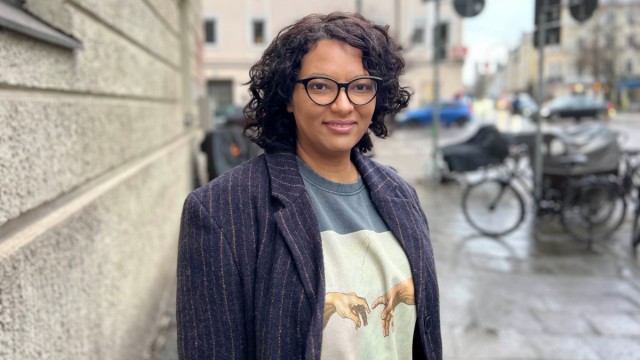The “secret plan” to expel foreign citizens and people with a migration history from Germany did not surprise Vural Ünlü. “Such deportation fantasies have always been an issue, especially among the radical wing of the AfD,” says the chairman of the liberal-oriented Turkish Community in Bavaria (TGB). Something different was new for him in the report by the research network Correctiv about the Potsdam round of right-wing extremists: “The combination of radicalism and networking of the right-wing radical structures with other, non-political actors, which in the connection is very explosive and is very worrying.”
The reaction of the Turks is twofold: “Some feel confirmed, especially by the older people, who say: They always wanted to get rid of us,” reports Ünlü – and speaks of resignation and “inner emigration.” Some people thought, “If there is a coalition with the AfD, I will still have the back door open and can go to Turkey.”
The reaction is different among the younger people. “They have the will to fight and say we have to stand up and oppose these developments.” They didn’t allow themselves to be intimidated, “Germany is their home.” The large demonstration last Sunday gave the community courage, “you have the feeling that you are not alone”.
Vural Ünlü is chairman of the Turkish community in Bavaria.
(Photo: private/oh)

Tatiana Mendonça from the Munich Migration Advisory Board.
(Photo: Petra Leyrer-Bleeck)
But the demonstrators also have to take the next step and “vote democratically so that we are protected,” says Tatiana Mendonça from the Munich Migration Advisory Board. The Brazilian-born woman doesn’t have a German passport, “of course you’re afraid, as the part of the population that the AfD hates the most.” She wants to protect her 13-year-old daughter, who is German because of her German father, but doesn’t look like it. “I’ve already spoken to her about the AfD, but I don’t want to scare her either.” For the 44-year-old web designer, the fact that tens of thousands demonstrated in the “international city of Munich” is “a very good sign because we feel a little safer as migrants.”
After the Correctiv publication, the Migration Advisory Board received a large number of inquiries, reports its chair Dimitrina Lang. “It’s a mixture of anger, sadness and horror. And a lot of fear.” Many wanted to know whether they should apply for a German passport. “Others said it didn’t affect them at all, but only people who took advantage of the social systems.” The native Bulgarian, who works as a social worker for the city, speaks of “dangerous thinking according to the motto: If I behave well, I am protected.” She is not afraid of herself, not even for her family. But “an anger because these people are living out their expulsion fantasies with our tax money.” As a co-organizer of the demo against right-wing extremism, the Migration Advisory Board attached great importance to “that the migrant sector is visible on the stage. We wanted those affected and not just initiatives.”
Anes Hasanbegovic also emphasizes how important the voices of migrants are and how absurd the fantasies of expulsion are. The 24-year-old grew up in Bosnia and moved to Munich with his parents nine years ago. Here he organizes the European Youth Parliament and is himself a member of the SPD. “I also talk to mom and dad about politics, now of course about the secret meeting in Potsdam and possible deportations,” says Hasanbegovic. His father just asked: “And then what do they want without us?” Both parents pursue medical professions in Munich. “If they deport us all, Germany will no longer be able to function. The health system would collapse,” says Hasanbegovic.
He currently only has a Bosnian passport. Last Friday, the Bundestag passed a legal reform that will allow immigrants to have dual citizenship in the future. Hasanbegovic is now planning to apply for a German passport – this would also give him the right to vote. He wants to use this power, he says, and use his voice to ensure “that people like my parents, who do so much for our country, don’t have to live in fear.”

